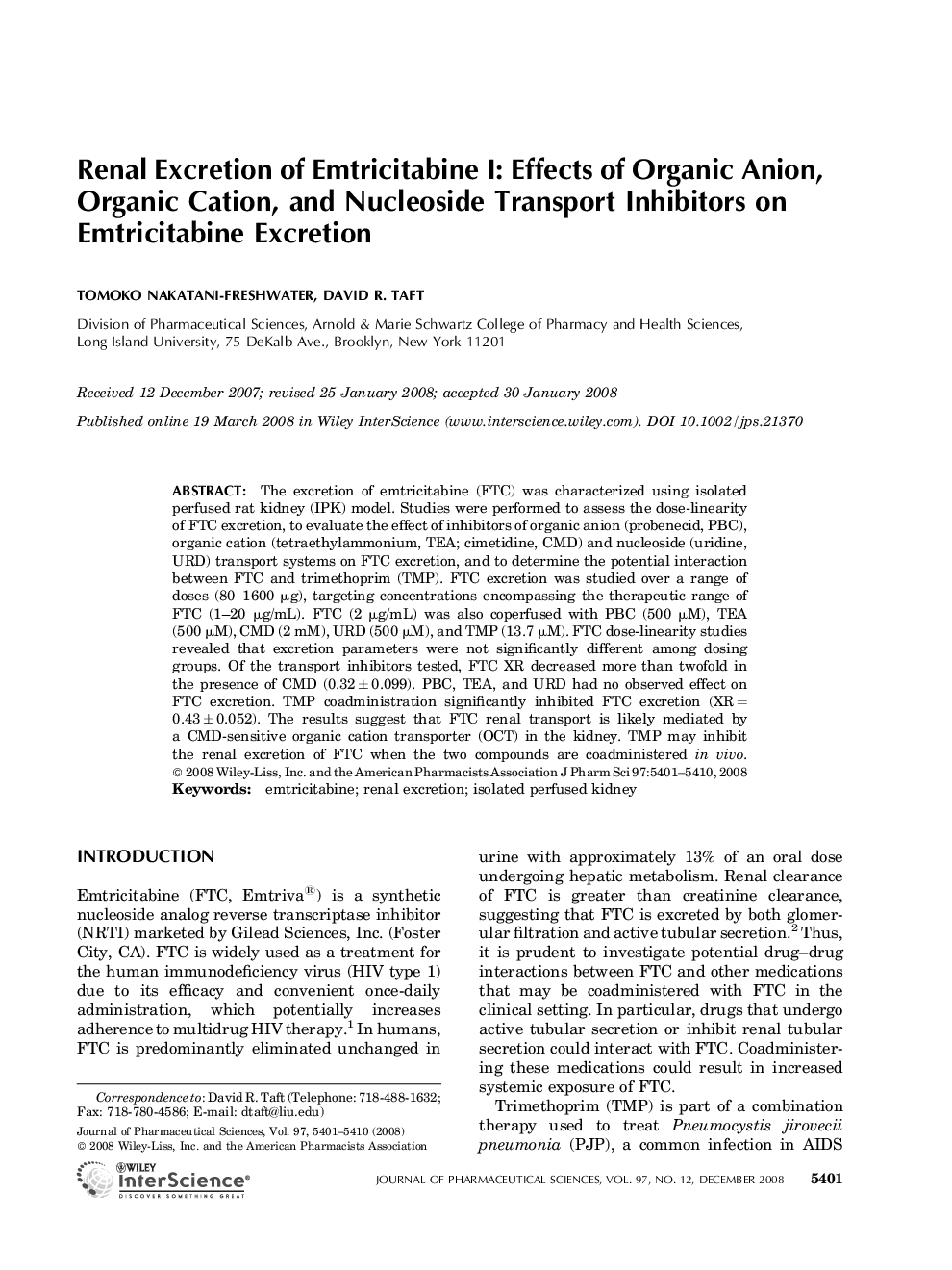| Article ID | Journal | Published Year | Pages | File Type |
|---|---|---|---|---|
| 2487418 | Journal of Pharmaceutical Sciences | 2008 | 10 Pages |
Abstract
The excretion of emtricitabine (FTC) was characterized using isolated perfused rat kidney (IPK) model. Studies were performed to assess the doseâlinearity of FTC excretion, to evaluate the effect of inhibitors of organic anion (probenecid, PBC), organic cation (tetraethylammonium, TEA; cimetidine, CMD) and nucleoside (uridine, URD) transport systems on FTC excretion, and to determine the potential interaction between FTC and trimethoprim (TMP). FTC excretion was studied over a range of doses (80-1600 µg), targeting concentrations encompassing the therapeutic range of FTC (1-20 µg/mL). FTC (2 µg/mL) was also coperfused with PBC (500 µM), TEA (500 µM), CMD (2 mM), URD (500 µM), and TMP (13.7 µM). FTC doseâlinearity studies revealed that excretion parameters were not significantly different among dosing groups. Of the transport inhibitors tested, FTC XR decreased more than twofold in the presence of CMD (0.32â±â0.099). PBC, TEA, and URD had no observed effect on FTC excretion. TMP coadministration significantly inhibited FTC excretion (XRâ=â0.43â±â0.052). The results suggest that FTC renal transport is likely mediated by a CMDâsensitive organic cation transporter (OCT) in the kidney. TMP may inhibit the renal excretion of FTC when the two compounds are coadministered in vivo. © 2008 WileyâLiss, Inc. and the American Pharmacists Association J Pharm Sci 97:5401-5410, 2008
Related Topics
Health Sciences
Pharmacology, Toxicology and Pharmaceutical Science
Drug Discovery
Authors
Tomoko NakataniâFreshwater, David R. Taft,
